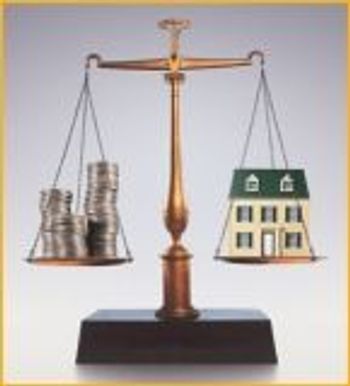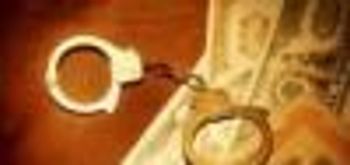
In the final installment of a four-part series on house-hunting in New York City, the doctor's unexpectedly finds closure after her futile search for the perfect pied-Ã -terre.

In the final installment of a four-part series on house-hunting in New York City, the doctor's unexpectedly finds closure after her futile search for the perfect pied-Ã -terre.

A slew of tax cuts are set expire in less than six months, unless Congress acts to extend them. With the government starved for revenue and the national debt topping $13 trillion, Washington watchers are speculating over which tax breaks lawmakers will choose to extend.

Doctors spoke and policy makers listened. The final rule on "meaningful use" of EHRs includes provisions designed to provide more flexibility and multiple pathways for those charged with meeting the requirements.

Starting this month, consumers have to opt-in to allow banks to charge overdraft fees on certain financial accounts. Unfortunately, whether you choose to consent to overdraft protection or not, you may soon be facing higher account fees.

Two videos hit the Web recently to drive their eye-opening messages home: One looks at the dangers of sloppy patient-information handoffs, while the other uses humor to raise awareness about CPR and AED.

Second-quarter earnings reports are starting to arrive and analysts are expecting solid results. But market watchers say it's more important than ever to focus on what companies see coming down the road, rather than what's in the rear-view mirror.

Author Tony Schwartz's technique of working for uninterrupted 90-minute blocks of time -- focusing intently on the task at hand -- and then taking a "rest and renewal" break, may help you get back more of your day.

Medical identity theft is a disturbing and growing trend, and the onus is on physician practices to guard patient records. The cost of not doing so can be considerable: A new survey shows it takes twice as much time to detect medical fraud and more than twice as money on average to remedy each case.

In the third in a series on the many wonders of small ship cruising through South East Alaska, our travel columnists visit the sparsely populated state capital of Juneau.

Splitting up with your spouse can devastate your retirement savings if you're not careful. Unless you have the proper paperwork in place, you may be on the hook to pay income taxes on both your share of the account and your spouse's share.

Non-profit organizations often need money, marketing advice and managerial shoring up, but what they really require is more advice and training at the board level. Being a non-profit board member is a unique position -- and one many physicians should consider.

Large biotech stocks surged on rumors of a major acquisition by French drug giant Sanofi. Tiny Dynavax rose on news of its first clinical trial of a universal flu vaccine, and Vivus soared after being called "one of the most attractive product-driven stories in the mid-cap biotech space."

Next week begins some early earnings announcements, when a clearer picture will emerge for making decisions on increasing short exposure or long exposure in the market. We believe the technical damage done in recent weeks may require some more time to mend, and that would be normal and expected during this phase of a market cycle.

The recent carnage in the stock market has led to lower interest rates on Treasury securities, with the yield on the 10-year note falling as low as 2.938% before ending last week at 2.98%. The lower rates have spilled over into the mortgage market, where interest rates hit a record low. Is now the time to refinance?

In this uncertain market, a balance of equities, bonds, real estate, commodities, and other alternative investments would prove much less risky than holding the majority of your investments in stocks and real estate -- which is what most physicians do.

In Part III of a four-part series on house-hunting in New York City, the doctor's deal to purchase a co-op is suddenly undone -- and her 10 percent downpayment in jeopardy -- when her agent drops the ball on residency restrictions.

The number of illegal, abusive trusts is on the rise, the IRS warns. Even if you're a victim, you could face criminal and civil penalties. If you've been approached about setting up a trust, or have done so already, here's what you need to know.

Factors affecting your practice revenue -- payor policies, new legislation and patient-care codes -- are changing dramatically. By using this S.M.A.R.T. revenue-management system, you can set internal benchmarks and target areas that need to be improved.

A reader with more than $175,000 in student loans wonders whether having so much debt will hurt his credit score. The good news is the total amount of your loans isn't as much a factor in calculating your credit score as is your ability to repay them.

In the second in a series on the many wonders of small ship cruising through South East Alaska, our travel columnists visit Petersburg, Alaska's "Little Norway."

A computer-generated reminder telephone call can reduce the number of patient no-shows, but a human voice does even better, according to a recent study published in the Journal of the American Medical Association.

More physicians are attempting to boost revenue by charging patients new "add-on" fees for such things as missed appointments, filling out medical school or work forms, providing copies of records, or general administrative work. But doing so effectively without incurring the wrath of your patients is key.

On July 1, two important changes in the Income-Based Repayment plan went into effect that may allow more doctors to join the student-loan repayment program and lower monthly payments for married couples.

New Fed rules eliminate credit-card inactivity fees, and restrict late fees and over-the-limit charges -- but your interest rate may still rise without warning. Here's a look at what the new rules mean to you.

There's no way to accurately predict the direction of the stock market -- it's best to let the actual price and volume provide the clues. For now, it appears the line of least resistance is down from here, though we are expecting a brief attempt to stabilize and rally in the near-term.

David DeVore became a YouTube sensation after his parents uploaded a video of the boy on his way home from dental surgery. But what was originally meant to be a memory to share among family and friends has earned the DeVores close to $150,000.

The Internal Revenue Service is increasing the number of audits on returns of high-net-worth taxpayers. If you're one of them, don't panic ... just follow these six steps.

A repeat entrepreneur walks away with billions this week after selling his second successful start-up. Obesity-drug makers had a busy week, and a management shakeup shook up investors in an already struggling cancer-drug developer.

The S&P 500 posted its first negative "named" decade ever from 2000 to 2009. That means, if you invested $1 in the S&P 500 at the beginning of '00, you would have had 91 cents at the end of '09. So, were the 2000s the "lost decade" for investors? Not for all -- investors who maintained diversified portfolios actually fared much better.

Under the pending financial reform bill, a newly created consumer protection agency would oversee private student loans, including those that for-profit colleges make to students. The bill would also create an ombudsman position, to give borrowers a place to turn for help with loan problems.